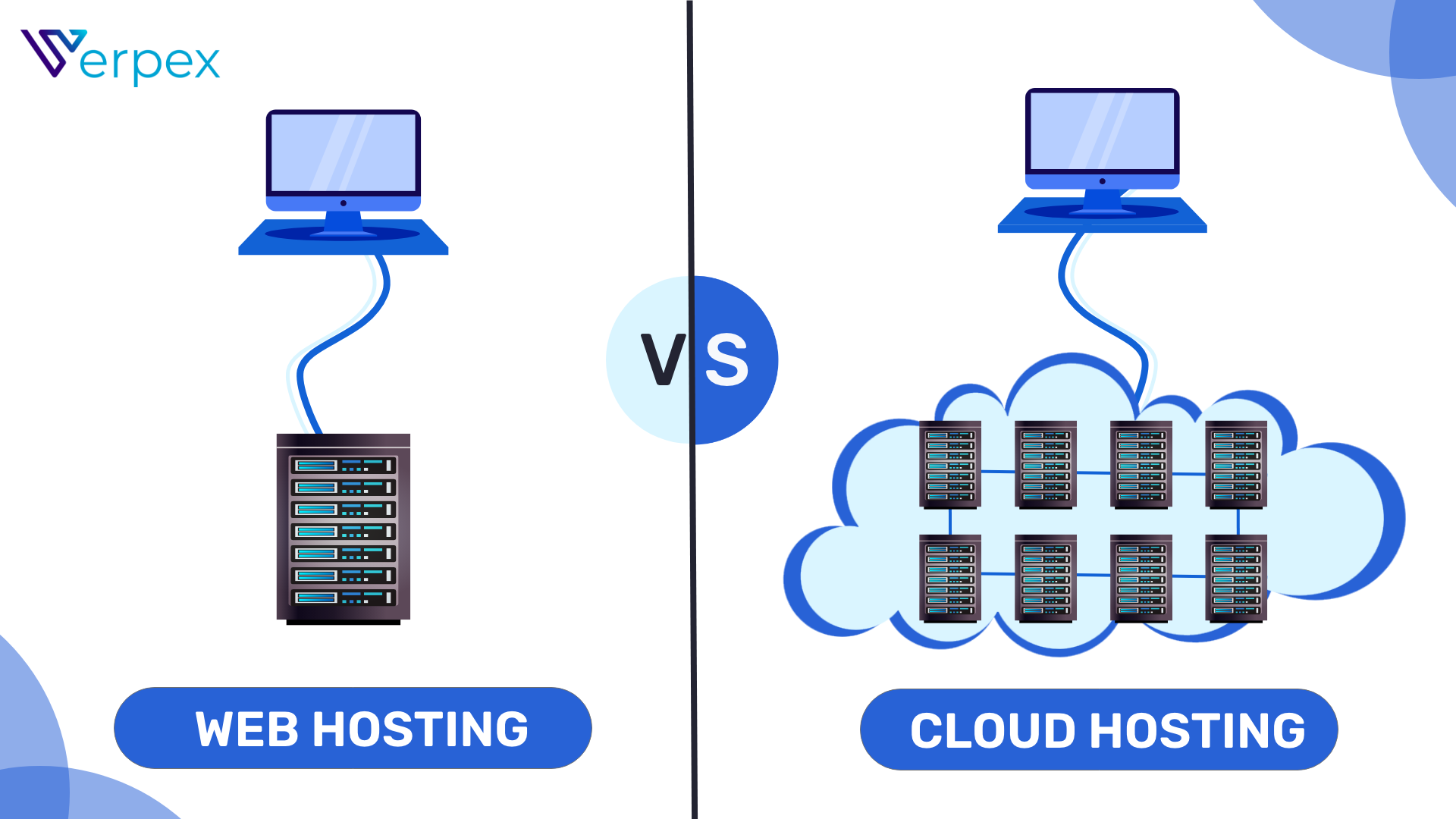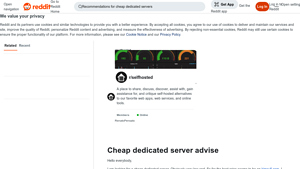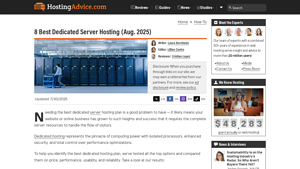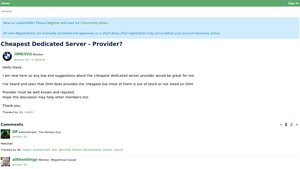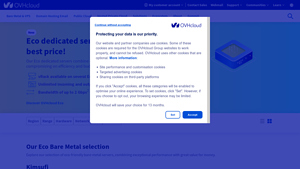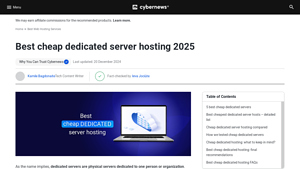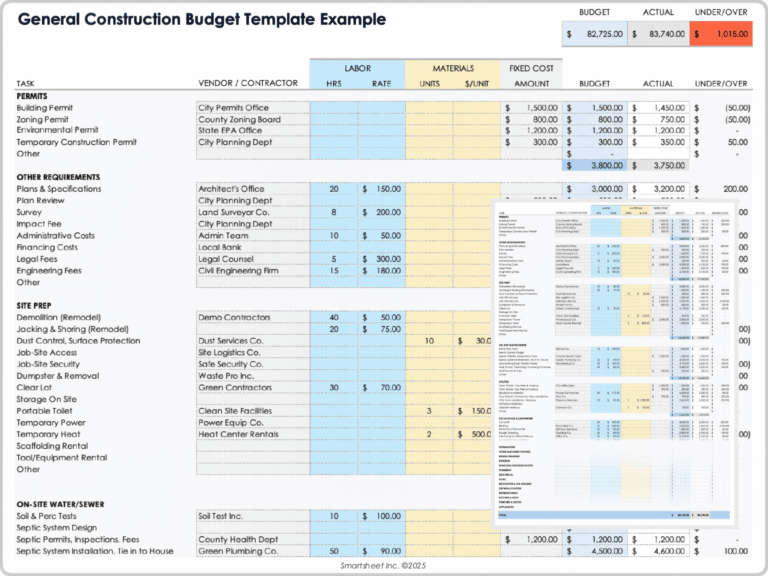The 7 Best Cheap Dedicated Hosting Services of 2025
Choosing Your Digital Home: An Introduction to Web Hosting
When embarking on the journey of creating a website, one of the most critical decisions you’ll face is selecting the right web hosting service. This choice lays the foundation for your online presence, affecting everything from website performance and speed to security and scalability. For small business owners, bloggers, developers, and individuals starting a website, navigating the myriad of hosting options can be overwhelming. With an abundance of providers, plans, and features available, it’s common to feel confused about where to start.
Understanding Web Hosting
At its core, web hosting is a service that allows individuals and organizations to make their websites accessible via the internet. Depending on your specific needs—whether you’re launching a personal blog, an e-commerce site, or a portfolio for your freelance work—different types of hosting solutions may be more suitable. The main categories include shared hosting, VPS (Virtual Private Server) hosting, dedicated hosting, and cloud hosting, each offering varying levels of performance, control, and resources.
The Challenge of Choice
The challenge lies in understanding the nuances of each type of hosting and how they align with your requirements. For instance, while shared hosting is cost-effective and user-friendly, it may not handle high traffic efficiently. Conversely, dedicated hosting provides robust performance but can be more expensive and complex to manage. With so many providers competing for your attention, it can be difficult to discern which service will truly meet your needs.
Your Comprehensive Guide
This guide aims to be your one-stop resource for demystifying web hosting. We will explore the different types of hosting, delve into key features to consider, and provide a comparative analysis of top hosting providers. Whether you’re a small business owner needing reliable uptime, a blogger looking for simplicity, or a developer seeking flexibility, we will equip you with the knowledge to make an informed choice.
By the end of this guide, you’ll have a clearer understanding of what to look for in a hosting provider, allowing you to select the digital home that not only fits your current needs but also has the potential to grow with you. Let’s take the first step in building your online presence with confidence and clarity.
The Best Cheap Dedicated Hosting Providers of 2025
5 Reasons to Choose a Cheap Dedicated Server for Your Self-Hosting Needs!
In the Reddit thread “Cheap dedicated server advice,” users discuss Youstable’s offerings of fully dedicated servers at competitive prices, making it an appealing option for budget-conscious self-hosters. The service stands out by not imposing any additional setup fees, allowing users to maximize their investment. This makes Youstable particularly suitable for individuals or small businesses seeking reliable performance without the financial burden typically associated with dedicated hosting solutions.
- Website: reddit.com
- Company Age: Approx. 20 years (domain registered in 2005)
8. PowerUp Hosting – Unmatched Performance for Heavy Traffic
In the “8 Best Dedicated Server Hosting (Aug. 2025)” review by HostingAdvice.com, InterServer stands out as the top choice for budget-conscious users seeking reliable dedicated hosting. Renowned for its affordability and flexible plans, InterServer offers robust performance and scalability, making it an ideal option for small to medium-sized businesses and individuals looking to optimize their online presence without breaking the bank.
- Website: hostingadvice.com
- Company Age: Approx. 21 years (domain registered in 2004)
5. Best Budget Picks for Dedicated Servers!
The review article discusses OVH Kimsufi as a leading provider of the cheapest dedicated servers, highlighting its affordability and competitive configurations. However, it also notes that many of the best deals are often unlisted or out of stock, which may pose challenges for potential customers seeking budget-friendly options. This makes it particularly appealing for cost-conscious users looking for reliable performance without breaking the bank.
- Website: lowendtalk.com
- Company Age: Approx. 15 years (domain registered in 2010)
5 Reasons to Choose ECO OVHcloud for Affordable Dedicated Servers!
ECO OVHcloud offers low-cost dedicated servers designed for users seeking exceptional performance without straining their budgets. These servers feature robust capacities that cater to various applications, making them ideal for small to medium-sized businesses or developers looking for reliable hosting solutions. With a focus on efficiency and affordability, ECO OVHcloud balances quality and cost, ensuring users can scale their operations without overspending.
- Website: eco.ovhcloud.com
- Company Age: Approx. 14 years (domain registered in 2011)
3. BudgetBytes – Unbeatable Value for Dedicated Servers!
In “Best Cheap Dedicated Server Hosting 2025: Expert Insights,” CyberNews evaluates affordable dedicated server options from Liquid Web, IONOS, and InMotion. Targeting budget-conscious businesses and developers, the article highlights these providers’ competitive pricing without compromising on performance, reliability, or support. With a focus on essential features for optimal server management, it serves as a valuable resource for those seeking cost-effective dedicated hosting solutions in 2025.
- Website: cybernews.com
- Company Age: Approx. 28 years (domain registered in 1997)
What is Web Hosting? A Plain English Guide
Web hosting is a crucial service that allows individuals and businesses to make their websites accessible on the internet. To understand web hosting better, think of it like renting a space for a house. Just like you need a physical location to live or run a business, you need a place on the internet to store your website files so that people can access them.
When you create a website, you build pages filled with content, images, and other media. These files need to be stored somewhere that is connected to the internet so that visitors can reach your site whenever they want. This is where web hosting comes into play.
What is a Server?
A server is a powerful computer that stores your website files and makes them available to users on the internet. Imagine it as the landlord of the space you’re renting. Just like a landlord takes care of the property, a server ensures your website is operational and accessible. When someone types your website’s address (also known as a domain name) into their browser, that request is sent to the server where your site is hosted. The server then retrieves your website files and delivers them to the user’s browser, allowing them to view your site.
Servers can come in various forms and sizes. Some are shared among multiple websites, while others are dedicated solely to one website. Shared hosting is like living in an apartment building where you share common spaces with other tenants. In contrast, dedicated hosting is like having your own house, giving you more control and resources, but usually at a higher cost.
How Do Domains and Hosting Connect?
To access a website, users enter a domain name, which is the address of your website on the internet (like www.yourbusiness.com). Think of the domain name as the street address for your house. It tells people where to find you online. However, a domain name alone isn’t enough to make a website visible; it needs to be connected to a web hosting service.
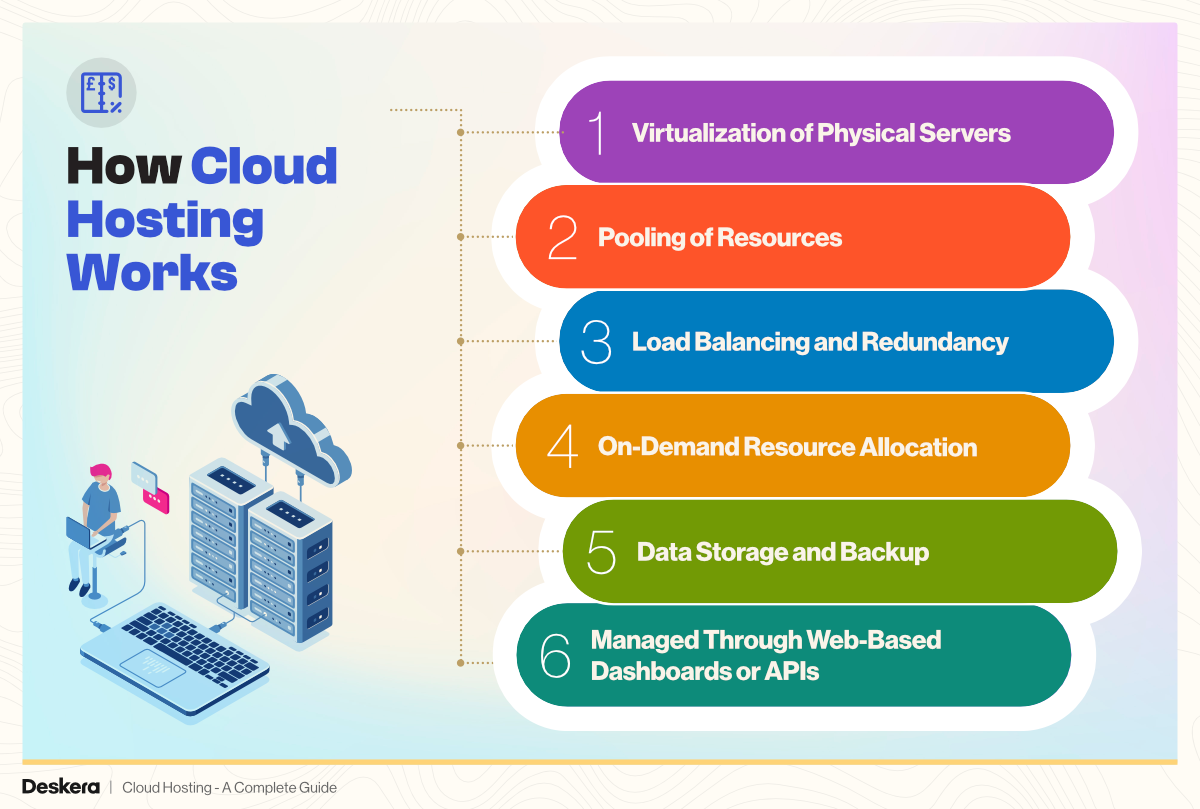
When you purchase a domain name, you are essentially reserving that address. You then need to point this domain to your hosting server. This process is similar to letting your visitors know which specific apartment or house to visit when they arrive at your street. The domain name directs traffic to the server where your website files are stored. When someone enters your domain into their browser, the request is routed to your server, which then serves the website content.
Why Do I Need a Hosting Service?
Having a hosting service is essential for anyone looking to establish an online presence. Here are a few reasons why:
-
Accessibility: A hosting service ensures that your website is always available to visitors. Without hosting, your website would not exist on the internet, and no one could find it.
-
Storage: Just like you need physical space to store your belongings, your website files need storage on a server. Hosting services provide this storage, allowing you to upload all the necessary files for your website.
-
Performance: A good hosting service can significantly impact your website’s performance. Faster servers lead to quicker loading times, which is crucial for user experience and search engine rankings. A reliable hosting provider also offers uptime guarantees, ensuring that your site is accessible to visitors around the clock.
-
Support: Many hosting providers offer customer support to help you with any technical issues that may arise. This support can be invaluable, especially for small business owners or individuals who may not have technical expertise.
-
Security: Hosting services often include security features to protect your website from cyber threats. This is akin to having a good security system in your house to keep your belongings safe.

In summary, web hosting is a vital service that allows you to store your website files and make them accessible to users on the internet. By understanding the relationship between servers, domains, and hosting, you can make informed decisions about how to best set up your online presence. Whether you’re a small business owner, a blogger, or a developer, choosing the right hosting service is crucial for your website’s success.
Types of Web Hosting: A Detailed Comparison
| Hosting Type | Best For | Performance | Price Range | Key Pro | Key Con |
|---|---|---|---|---|---|
| Shared Hosting | Beginners, small websites, blogs | Moderate | $2 – $10/month | Cost-effective | Limited resources |
| VPS Hosting | Growing websites, developers | Good, with dedicated resources | $20 – $100/month | Greater control and flexibility | Higher cost than shared |
| Dedicated Server Hosting | Large businesses, high-traffic sites | Excellent, full server resources | $80 – $500+/month | Complete control and performance | Expensive and requires management |
| Cloud Hosting | Scalable websites, e-commerce | Highly scalable and reliable | $10 – $300/month | Pay-as-you-go pricing | Can be complex to manage |
| Managed WordPress Hosting | WordPress sites, bloggers | Optimized for WordPress | $20 – $100/month | Hassle-free management | Limited to WordPress only |
Shared Hosting
What It Is:
Shared hosting is the most basic type of web hosting service, where multiple websites share the same server resources such as CPU, RAM, and disk space. This makes it a cost-effective option for individuals and small businesses who are just starting out.
Who Should Use It:
Shared hosting is ideal for beginners, personal blogs, or small businesses with low to moderate traffic. If you’re just starting a website and want to keep costs down, shared hosting is a suitable choice.
Pros:
– Cost-Effective: The most affordable option available, making it accessible for beginners.
– Easy to Use: Most providers offer user-friendly control panels (like cPanel) that simplify website management.
– Maintenance-Free: The hosting provider takes care of server maintenance and management tasks.
Cons:
– Limited Resources: Since resources are shared, your website’s performance can be affected by other sites on the same server.
– Less Control: You have limited access to server settings and configurations.
– Scalability Issues: As your site grows, you may quickly outgrow the shared hosting environment.
VPS Hosting
What It Is:
Virtual Private Server (VPS) hosting provides a middle ground between shared and dedicated hosting. A physical server is divided into several virtual servers, each with its own dedicated resources. This allows for greater customization and control compared to shared hosting.
Who Should Use It:
VPS hosting is suitable for growing websites, online applications, and developers who need more resources and flexibility without the cost of a dedicated server. It’s ideal for businesses that have outgrown shared hosting but don’t need a full dedicated server yet.
Pros:
– Dedicated Resources: You have access to dedicated CPU, RAM, and disk space, which leads to better performance.
– Greater Control: VPS hosting often allows for root access, enabling you to configure server settings according to your needs.
– Scalability: You can easily upgrade your resources as your website grows.
Cons:
– Higher Cost: More expensive than shared hosting, which may be a consideration for small businesses.
– Management Required: While some VPS plans are managed, others require technical knowledge to set up and maintain.
– Potential for Overhead: If not properly managed, performance can still be impacted by neighboring virtual servers.
Dedicated Server Hosting
What It Is:
Dedicated server hosting provides an entire physical server solely for your website or application. This type of hosting offers maximum performance, security, and control.
Who Should Use It:
Dedicated hosting is best for large businesses, high-traffic websites, and organizations that require robust performance and enhanced security measures. If you handle sensitive data or expect significant traffic, this option is ideal.
Pros:
– Complete Control: You have full administrative access to the server, allowing for extensive customization and configuration.
– High Performance: Dedicated resources lead to better load times and faster response times.
– Enhanced Security: With a dedicated server, you can implement your own security protocols and measures.
Cons:
– Costly: This is the most expensive hosting option, which may not be feasible for smaller businesses.
– Management Required: Requires technical expertise to manage and maintain the server effectively.
– Underutilization Risk: If your site doesn’t require the resources, you may end up paying for unused capacity.
Cloud Hosting
What It Is:
Cloud hosting utilizes a network of virtual servers (the cloud) to host websites. It enables the hosting of sites on multiple servers, which allows for flexible resource allocation and scalability.
Who Should Use It:
Cloud hosting is ideal for businesses that experience fluctuating traffic, e-commerce sites, or any website that requires high uptime and performance. It’s perfect for those who need to scale their resources up or down quickly.
Pros:
– Scalability: Easily scale resources based on demand without downtime.
– Pay-as-You-Go: You only pay for the resources you use, which can be cost-effective for growing businesses.
– High Availability: Cloud hosting offers excellent redundancy, ensuring high uptime and reliability.
Cons:
– Complexity: Managing a cloud hosting environment can be more complicated than traditional hosting options.
– Variable Costs: Costs can fluctuate based on usage, making budgeting more challenging.
– Less Control: Depending on the provider, you may have less control over the underlying infrastructure.
Managed WordPress Hosting
What It Is:
Managed WordPress hosting is a specialized hosting service tailored specifically for WordPress websites. It typically includes features like automatic updates, backups, and enhanced security.
Who Should Use It:
This type of hosting is perfect for bloggers, businesses, and individuals who use WordPress and want a hassle-free hosting experience without needing to manage technical details.
Pros:
– Optimized for WordPress: The servers are configured specifically for WordPress, leading to better performance.
– Automatic Updates: Most plans include automatic core updates and security patches.
– Enhanced Security: Managed hosting providers often implement advanced security measures to protect your site.
Cons:
– Higher Cost: Generally more expensive than standard shared hosting.
– Limited to WordPress: You cannot host websites built on other platforms.
– Less Flexibility: Some managed hosting plans impose restrictions on themes and plugins.
In conclusion, choosing the right type of web hosting depends on your specific needs, budget, and technical expertise. By understanding the strengths and weaknesses of each hosting type, you can make an informed decision that aligns with your website goals. Whether you’re just starting out with shared hosting or require the power of dedicated servers, there is a solution that fits your unique requirements.
How to Choose a Hosting Provider: A 5-Point Buyer’s Guide
Choosing the right hosting provider is critical for the success of your website, whether you’re running a small business, a personal blog, or a large online platform. Here’s a comprehensive guide to help you make an informed decision based on five key factors.
Performance and Uptime
Importance
Performance and uptime are perhaps the most crucial factors when selecting a hosting provider. A slow or frequently down website can lead to poor user experience, lower search engine rankings, and ultimately, loss of revenue. Ideally, your hosting provider should guarantee at least 99.9% uptime, ensuring that your website is available to users almost all the time.
What to Look For
– Uptime Guarantee: Look for providers that offer a clear uptime guarantee, ideally 99.9% or higher. This is often stated in their service level agreement (SLA).
– Performance Metrics: Research the hosting provider’s performance metrics, including average load times and server response times. A good host should have fast server speeds, which can be verified through independent reviews and benchmarks.
– Content Delivery Network (CDN): Some providers offer integrated CDN services that can significantly improve load times for global audiences. This is especially beneficial if you expect traffic from various geographical locations.
– Resource Allocation: Understand how resources like CPU, RAM, and bandwidth are allocated. For shared hosting, ensure that the provider doesn’t overload servers, which can lead to performance issues.
Customer Support
Importance
Reliable customer support can save you time, money, and stress. When issues arise, you want to ensure that you can reach out to knowledgeable support staff who can help resolve problems quickly.
What to Look For
– Availability: Check if customer support is available 24/7 via multiple channels such as live chat, phone, and email. This ensures you can get help whenever you need it.
– Response Time: Look for reviews that mention response times. Ideally, you want a provider that addresses issues promptly.
– Expertise: Consider the qualifications of the support team. A knowledgeable support staff with technical expertise can be a significant advantage, especially for complex issues.
– Self-Service Options: A good hosting provider should also offer self-help resources such as knowledge bases, FAQs, and tutorials to assist you in resolving common issues independently.
Pricing and Renewal Rates
Importance
While it can be tempting to choose the cheapest hosting option, it’s essential to look beyond the initial price. Hosting costs can increase significantly upon renewal, so understanding the pricing structure is vital for long-term budgeting.
What to Look For
– Transparent Pricing: Ensure that the pricing structure is transparent and easy to understand. Look for any hidden fees that may apply when you sign up or renew your plan.
– Renewal Rates: Pay attention to the renewal rates after the initial contract period. Some providers offer low introductory rates that significantly increase upon renewal.
– Money-Back Guarantee: A money-back guarantee allows you to test the service risk-free. Look for a provider that offers at least a 30-day money-back guarantee.
– Payment Options: Check if the provider offers flexible payment options, such as monthly, yearly, or multi-year contracts, which can help with budgeting.
Security Features (SSL, Backups)
Importance
Security is a critical consideration for any website. With increasing cyber threats, you must ensure that your hosting provider has robust security measures in place to protect your data and your visitors.
What to Look For
– SSL Certificates: Look for hosts that offer free SSL certificates, which encrypt data transferred between your website and its visitors, enhancing security and improving SEO rankings.
– Regular Backups: Ensure that the hosting provider performs regular backups of your data. Understand how often backups are done and how easily you can restore your data in case of data loss.
– DDoS Protection: Check if the provider offers DDoS protection to safeguard your site from distributed denial-of-service attacks.
– Firewalls and Security Monitoring: A good hosting provider should include firewalls and security monitoring tools to detect and prevent unauthorized access and attacks.
Scalability and Future Growth
Importance
As your website grows, your hosting needs may change. Selecting a hosting provider that allows for easy scalability can save you the hassle of migrating to another host as your traffic and resource demands increase.
What to Look For
– Upgrade Options: Look for providers that offer a range of hosting plans, from shared hosting to VPS and dedicated servers, making it easy to upgrade as your needs grow.
– Resource Flexibility: Ensure that the provider allows you to easily increase resources such as bandwidth, storage, and processing power without downtime or significant migration efforts.
– Cloud Hosting Solutions: Consider cloud hosting options, which can automatically allocate resources based on demand, providing flexibility and scalability.
– Long-Term Contracts: While long-term contracts can offer lower rates, ensure they also include options for scaling up or down as your business needs change.
Conclusion
Choosing the right hosting provider is a pivotal decision that can significantly affect your website’s performance, security, and overall success. By carefully considering performance and uptime, customer support, pricing and renewal rates, security features, and scalability, you can make an informed choice that aligns with your current needs and future growth plans. Take the time to compare different providers, read reviews, and utilize trial periods whenever possible to ensure you find the best hosting solution for your website.
Key Hosting Terms and Jargon Explained
cPanel
cPanel is a web-based control panel that simplifies the management of web hosting accounts. It provides users with an intuitive interface to perform various tasks related to their websites and hosting services without needing extensive technical knowledge.
Features of cPanel
- User-Friendly Interface: cPanel’s layout is designed for ease of use, allowing users to navigate through different sections effortlessly.
- Website Management Tools: Users can manage files, databases, email accounts, and domains through cPanel.
- One-Click Installers: cPanel often includes tools like Softaculous, enabling users to install popular applications (such as WordPress, Joomla, etc.) with a single click.
- Backup Options: cPanel offers backup functionalities to help users secure their data easily.
SSL Certificate
An SSL (Secure Sockets Layer) certificate is a digital certificate that establishes a secure, encrypted connection between a web server and a browser. This is critical for protecting sensitive information, such as credit card numbers and personal data, during transmission.
Importance of SSL Certificates
- Data Security: SSL encrypts the data exchanged between users and websites, preventing unauthorized access.
- Trust Indicator: Websites with SSL certificates display a padlock icon in the browser’s address bar, indicating they are secure, which builds trust with visitors.
- SEO Benefits: Search engines like Google favor secure websites, potentially boosting their search rankings.
Bandwidth and Data Transfer
Bandwidth refers to the maximum amount of data that can be transmitted over an internet connection within a specific timeframe, usually measured in bits per second (bps). Data transfer, on the other hand, is the actual amount of data sent and received by a website during a given period, typically measured monthly.
Key Points on Bandwidth and Data Transfer
- Understanding Limits: Hosting providers often set bandwidth limits on plans, meaning if a website exceeds its bandwidth allowance, it may incur extra fees or experience throttling.
- Importance for Websites: High-traffic websites require more bandwidth to accommodate simultaneous users without performance issues.
- Monitoring Usage: Many hosting services offer tools to monitor bandwidth usage, helping website owners understand their traffic patterns.
Storage (SSD vs. HDD)
Storage refers to the medium used to store website files and data. The two primary types of storage are Solid State Drives (SSD) and Hard Disk Drives (HDD).
SSD vs. HDD
- Solid State Drives (SSD):
- Speed: SSDs are significantly faster than HDDs, leading to quicker load times and better performance for websites.
- Durability: SSDs have no moving parts, making them less prone to mechanical failure.
-
Cost: Generally, SSDs are more expensive than HDDs but are becoming more affordable over time.
-
Hard Disk Drives (HDD):
- Capacity: HDDs typically offer larger storage capacities at lower prices, making them a cost-effective choice for data-heavy applications.
- Speed: HDDs are slower than SSDs, which can impact website performance, particularly for high-traffic sites or those requiring quick data retrieval.
- Durability: HDDs are more vulnerable to physical damage due to their mechanical components.
Domain Name System (DNS)
The Domain Name System (DNS) is a hierarchical system that translates human-readable domain names (like www.example.com) into numerical IP addresses (like 192.0.2.1) that computers use to identify each other on the network.
How DNS Works
- Domain Name Resolution: When a user types a domain name into a browser, DNS servers resolve the name to the corresponding IP address, allowing the browser to locate and load the website.
- DNS Records: Various types of DNS records (like A records, CNAME records, MX records) help manage different aspects of domain functionality, including directing traffic and handling email.
- Propagation: Changes to DNS records can take time to propagate across the internet, typically ranging from a few minutes to 48 hours, depending on the DNS configuration.
Uptime
Uptime is a measure of the time a web hosting service is operational and accessible to users. It is typically expressed as a percentage, with 100% uptime indicating that the service is available all the time.
Importance of Uptime
- Reliability: High uptime percentages (like 99.9% or higher) indicate reliable hosting, ensuring that websites remain accessible to visitors.
- Impact on Business: Downtime can lead to lost revenue, decreased user trust, and potential damage to a brand’s reputation.
- Monitoring Tools: Many hosting providers offer uptime monitoring services that alert users when their site goes down, allowing for prompt action to restore service.
By understanding these key hosting terms, small business owners, bloggers, developers, and individuals starting a website can make informed decisions about their web hosting needs. Each term plays a crucial role in the overall performance and security of a website, influencing the user experience and success of online endeavors.
Frequently Asked Questions (FAQs)
1. What is cheap dedicated hosting?
Cheap dedicated hosting refers to a type of web hosting service where an entire physical server is allocated to a single user or organization at a lower price point compared to premium options. This allows users to have complete control over server resources, configurations, and security settings without sharing them with other clients, making it suitable for small businesses or individuals on a budget.
2. Can I host my own website on a cheap dedicated server?
Yes, you can host your own website on a cheap dedicated server. With dedicated hosting, you have complete control over the server environment, allowing you to install and configure any software or applications you need for your website. This makes it ideal for developers, bloggers, and small business owners who require specific configurations and resources.
3. How much should I pay for dedicated hosting?
The cost of dedicated hosting can vary widely based on the provider, server specifications, and included features. Generally, you can find cheap dedicated hosting plans starting around $50 to $100 per month. However, prices can go up significantly for high-performance servers or additional features like managed services, enhanced security, and premium support. It’s essential to compare different hosting options to find one that fits your budget and needs.
4. What’s the difference between a domain and hosting?
A domain is the address of your website that users type into their browser to visit it (e.g., www.example.com). Hosting, on the other hand, is the service that provides the infrastructure and technology needed to store your website’s files and make them accessible on the internet. In simple terms, your domain is your website’s name, while hosting is where your website lives.
5. What are the benefits of using cheap dedicated hosting?
Some benefits of using cheap dedicated hosting include:
– Cost-Effectiveness: Affordable plans allow you to access dedicated resources without breaking the bank.
– Full Control: You have complete administrative access, enabling you to customize server configurations according to your needs.
– Enhanced Performance: Dedicated servers provide better performance and stability, especially for websites with high traffic.
– Security: With no other users on the server, you can implement custom security measures tailored to your business.
6. Is cheap dedicated hosting reliable?
While reliability can vary among providers, many cheap dedicated hosting services can be reliable if you choose a reputable company. Look for hosts that offer uptime guarantees, robust customer support, and positive user reviews. It’s essential to research and ensure that the provider you choose has a good track record for performance and reliability.
7. What kind of support can I expect with cheap dedicated hosting?
Support options for cheap dedicated hosting vary by provider. Some may offer 24/7 customer support via phone, chat, or email, while others might provide limited support. It’s important to check the support options available and whether they include managed services, which can be beneficial if you’re not experienced with server management.
8. Can I upgrade my cheap dedicated hosting plan later?
Most hosting providers allow you to upgrade your hosting plan as your needs grow. This could mean moving to a higher-tier dedicated server or adding extra resources such as more RAM, storage, or bandwidth. Always check with your hosting provider about their upgrade policies to ensure you can scale your hosting solution as your website or business expands.
Conclusion: Making Your Final Decision
Understanding Your Unique Needs
Choosing the right web hosting service is a crucial decision that ultimately depends on your individual needs and circumstances. Factors such as your budget, expected traffic, and technical expertise play a significant role in determining the best hosting option for you. For instance, if you’re a small business owner with a limited budget and moderate traffic, shared hosting may be sufficient. Conversely, if you’re a developer managing high-traffic applications, you may need the robust resources of dedicated or VPS hosting.
Key Considerations for Your Hosting Choice
When evaluating potential hosting providers, consider these essential factors:
-
Customer Support: Reliable customer support can save you time and frustration when issues arise. Look for hosts that offer 24/7 support through multiple channels, such as live chat, phone, and email.
-
Uptime Guarantees: Uptime is critical for keeping your website accessible to visitors. Aim for a provider that offers at least a 99.9% uptime guarantee, ensuring your site remains online when it matters most.
-
Scalability: As your website grows, your hosting needs may change. Opt for a hosting plan that allows for easy upgrades and scalability, so you can accommodate increasing traffic without significant downtime or hassle.
Take the Next Step with Confidence
The world of web hosting can seem overwhelming, but understanding your unique requirements will empower you to make an informed decision. Remember that the “best” hosting service is subjective and varies from one individual to another.
With thorough research and consideration of the key factors outlined, you can select a hosting provider that aligns with your goals and budget. Start your project with confidence, knowing that the right hosting solution is just a decision away! Whether you’re launching a personal blog, a small business website, or a complex application, there’s a hosting option that’s perfect for you.
Important Disclaimer
⚠️ Important Disclaimer
The information and reviews in this guide are for educational purposes, based on publicly available data and our own analysis. We are not affiliated with any hosting providers mentioned. Features, pricing, and performance change frequently. Always conduct your own research and check the provider’s official website before making a purchase.
